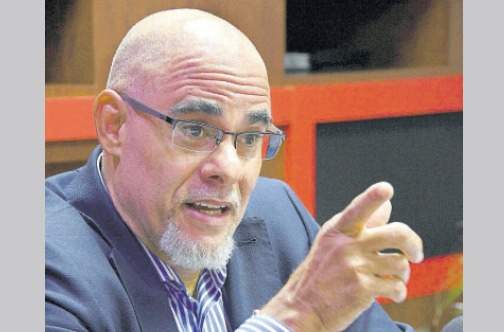With the country now set on a stable macroeconomic path, calls are beginning to sound for Government to undertake diversified approaches in helping to secure greater levels of growth —this especially in light of the fact that JISCO /Alpart aluminum plant’s closure for 18-24 months will result in a further 0.4-0.6 per cent fallout during the upgrade period.
At an Economic Programme Oversight Committee (EPOC) press briefing on Friday, Keith Duncan, co-chair of EPOC, in speaking about the issues of impediments to growth said that there is now a stronger need for us to consider having a diversified economy.
“There are so many opportunities for us. We need to move into the real sector in the projects going forward. — that’s why we need a diversified economy”, he said.
He cited logistics and agro-processing as some of the many other alternatives we can seek to develop in order to take the economy forward in spearheading economic growth.
He also noted that with the imminent temporary closure of Alpart which was contributing significantly to the mining sector, it is expected that other key industries will have to take up the task of keeping the economy buoyant.
“Mining was a major contributor to GDP; mining was contributing almost 29 per cent to the goods producing sector. Now, if that disappears for this year from JISCO, that would have a significant impact on growth. We expect that this will be offset by tourism, hotels and restaurants, agriculture — especially if there is a bounce back from the drought conditions of the first quarter — manufacturing –this continues to be steady; but we need to see more from these sectors,” he stated.
In a recent fiscal policy paper reporting on projected gross domestic product (GDP) for the quarter it was noted that the Government had lowered its growth target from 1.5 per cent to 0.7 per cent, due mainly to the announced closure of the Alpart aluminum plant.
“For FY 2018/19, real output expanded by 1.9 per cent and is currently projected to grow by 0.7 per cent in FY 2019/20, rather than the 1.5 per cent projected prior to the start of the fiscal year,” the fiscal policy paper stated.
http://www.jamaicaobserver.com/article/20191005/ARTICLE/191009800




Leave A Comment